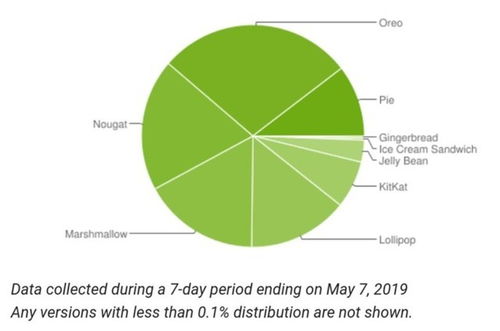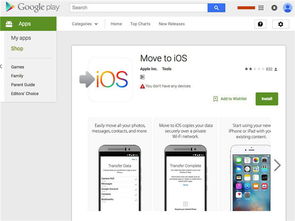
安卓系统发展外文,Introduction to Android: A Brief Overview
时间:2024-12-10 来源:网络 人气:
Introduction to Android: A Brief Overview

Android, a mobile operating system based on the Linux kernel, has revolutionized the way we interact with our devices. Developed by Google and the Open Handset Alliance, Android has become the dominant force in the smartphone market, surpassing its competitors like Apple's iOS and RIM's BlackBerry OS. This article delves into the evolution of Android, its key features, and its impact on the tech industry.
Origins and Early Years

Android was initially developed by Andy Rubin, who envisioned a platform that would enable seamless communication between devices. In 2005, Google acquired Android Inc. and began working on the project, which was later unveiled as the Android operating system. The first Android device, the HTC Dream (G1), was released in September 2008, marking the beginning of a new era in mobile technology.
Key Features and Advantages

Android has several key features that have contributed to its success:
Open Source: Android is an open-source platform, which means that developers can modify and distribute the source code freely. This has led to a vibrant ecosystem of apps and devices, with numerous manufacturers offering a wide range of Android-powered smartphones and tablets.
Customization: Android allows users to customize their devices with various launchers, themes, and widgets, providing a unique and personalized experience.
App Ecosystem: The Google Play Store offers millions of apps and games, catering to a wide range of user needs. This vast selection of apps has made Android a preferred choice for many users.
Interoperability: Android devices can easily connect to other devices, such as Bluetooth speakers, smartwatches, and fitness trackers, thanks to the Android ecosystem.
Market Share and Competition

Since its inception, Android has dominated the smartphone market, with a significant market share. According to StatCounter, Android held a 72.9% market share in the third quarter of 2021. This success can be attributed to several factors:
Cost-Effectiveness: Android devices are available at various price points, making them accessible to a broader audience.
Customization and Innovation: Manufacturers can customize Android to suit their specific needs, leading to a diverse range of devices with unique features.
Global Reach: Android has a strong presence in emerging markets, where it has become the preferred choice for many consumers.
Challenges and Future Prospects

Despite its success, Android faces several challenges:
Security Concerns: The open-source nature of Android has made it vulnerable to security threats, with numerous malware and ransomware targeting Android devices.
Fragmentation: The vast number of Android devices with varying hardware configurations has led to fragmentation, making it difficult for developers to create apps that work seamlessly across all devices.
Regulatory Issues: Governments in various countries have raised concerns about the data privacy and security of Android devices, which could impact the platform's growth in those regions.
However, Android has shown resilience in the face of these challenges. With continuous updates and improvements, the platform is well-positioned to address these issues and maintain its dominance in the smartphone market.
Conclusion

Android has come a long way since its inception, becoming the go-to platform for millions of users worldwide. Its open-source nature, vast app ecosystem, and cost-effectiveness have contributed to its success. As the mobile industry continues to evolve, Android will undoubtedly play a crucial role in shaping the future of mobile technology.
android mobiletechnology operatingsystem google smartphone marketshare security fragmentation innovation

相关推荐
教程资讯
教程资讯排行
- 1 安卓系统车机密码是多少,7890、123456等密码详解
- 2 vivo安卓系统更换鸿蒙系统,兼容性挑战与注意事项
- 3 希沃白板安卓系统打不开,希沃白板安卓系统无法打开问题解析
- 4 dell进不了bios系统,Dell电脑无法进入BIOS系统的常见原因及解决方法
- 5 安卓系统清理后突然卡顿,系统清理后安卓手机卡顿?揭秘解决之道!
- 6 安卓系统优学派打不开,安卓系统下优学派无法打开的解决攻略
- 7 12pm哪个系统最好,苹果12哪个版本的系统更省电更稳定
- 8 Suica安卓系统,便捷交通支付新体验
- 9 oppo刷原生安卓系统,解锁、备份与操作步骤详解
- 10 恋夜秀场安卓uc系统国产,打造专属互动体验











